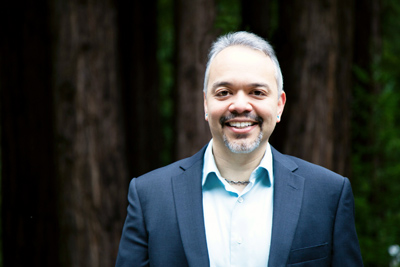Campus News
Spring 2016 academic curriculum updates
By Herbie Lee, Vice Provost Academic Affairs — Every year, faculty add, update, and occasionally discontinue academic programs to ensure our students get the best possible education. This year, we are making changes to the graduate and undergraduate curriculum, as well as to our online offerings.

Every year, faculty add, update, and occasionally discontinue academic programs to ensure our students get the best possible education. This year, we are making changes to the graduate and undergraduate curriculum, as well as to our online offerings.
I am pleased to announce these enhancements to the UC Santa Cruz curriculum:
Following the department establishment in 2014, a proposal for a Ph.D. and an M.S. in Computational Media is awaiting UC systemwide approval. These degree programs will provide students with an interdisciplinary education in a computing field that integrates arts and humanities research and practice. Both degrees aim to prepare students to be leaders in computational media, with master’s students performing innovative media creation and doctoral students researching at the forefront of computational media and contributing to the development of the field.
Two designated emphases have been established for graduate students to broaden their training in a related or different field from their declared degree program. The Designated Emphasis in Human Language Media and Modeling enhances the training in conducting research around issues related to theories and computational models of human language data in a range of media. The Designated Emphasis in Scientific Computing provides a formal opportunity to demonstrate mastery in scientific computing through coursework and research in computer simulations, numerical algorithms, and techniques for data analysis, visualization, and storage. Both of these programs are available to either master’s or doctoral students.
The Science, Technology, Engineering or Mathematics (STEM) Teaching Certificate available to graduate students is offered by the Institute for Scientist & Engineer Educators (ISEE). The certificate recognizes graduate students who have completed the requirements of the ISEE Professional Development Program, including lesson plan development, practical teaching experience, and post-teaching reflection.
The Collaborative Leadership Ed.D. program has been discontinued.
The Department of Economics has established a partnership with Hastings College of Law, allowing Hastings law students to pursue the M.S. in Applied Finance and Economics while completing their Juris Doctor degree from UC Hastings.
Adding to the existing five-year contiguous bachelor’s/master’s paths in Computer Engineering, Linguistics, and Physics, new programs have been established in Computer Science, Philosophy and Microbiology and Environmental Toxicology. Five-year contiguous bachelor’s/master’s programs (previously called 4+1 programs) benefit students by providing qualified undergraduates increased opportunities for career and/or future academic success. Students are be able to deepen their knowledge and experience in an academic field, complete both degree programs efficiently and often in a shorter time, obtain additional employment credentials, and improve their competitiveness for pursuing doctoral studies in top programs.
Two new minors have been established. The minor in History of Consciousness provides undergraduate students engagement with the knowledge and critical approaches distinctively associated with the department’s graduate program. The minor in Music will provide undergraduate students a focus for music activities as well as a background in music theory, history, and performance.
The minor in Sociology has been suspended. The courses covering requirements of the minor will be continued, allowing currently declared minors to complete the program with respect to catalog rights.
The Literature Department has discontinued the concentrations in English Language Literatures, Modern Literary Studies, Pre- and Early Modern Studies, and World Literature and Cultural Studies. This change is a result of faculty realigning the bachelor’s program from a focus on national literary canons to a focus on critical approaches.
Faculty have also been active in developing and offering fully online courses on several interesting topics. This summer, faculty will offer 13 different online courses, making it a great time to continue learning. These courses are fully online, allowing you to take them from anywhere in the world where there is Internet access. Here’s a link to online summer courses: http://summer.ucsc.edu/courses/online-courses.html
The campus is currently offing two free online courses on Coursera: C++ for C Programmers (Part A), and The Holocaust (https://www.coursera.org/ucsc). If these courses don’t pique your interest, this summer the campus will release three more free courses: C++ for C Programmers (Part B), Bayesian Statistics, and Children Acquiring Literacy Naturally. I hope you’ll take advantage of these opportunities to continue learning.